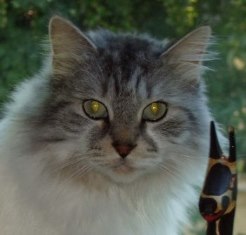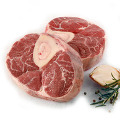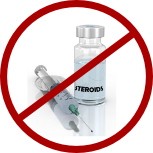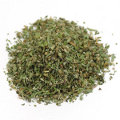 The thyroid controls important functions such as metabolism, body temperature, hair growth, reproduction, and heart rate. The thyroid gland is an endocrine gland. Endocrine glands, as a system, regulate most of the functions of the body. The pituitary gland is thought to be the master gland, and it produces a hormone that regulates the thyroid. Problems arise when these glands overproduce or underproduce. In cats, hyperthyroidism (over-producing) is very common, whereas dogs are commonly afflicted with hypothyroidism (under-producing).
The thyroid controls important functions such as metabolism, body temperature, hair growth, reproduction, and heart rate. The thyroid gland is an endocrine gland. Endocrine glands, as a system, regulate most of the functions of the body. The pituitary gland is thought to be the master gland, and it produces a hormone that regulates the thyroid. Problems arise when these glands overproduce or underproduce. In cats, hyperthyroidism (over-producing) is very common, whereas dogs are commonly afflicted with hypothyroidism (under-producing).
While the symptoms of a thyroid imbalance are wide-ranging, an experienced veterinarian can usually correctly diagnose the problem relatively quickly. Hyperthyroid cats are often skinny despite having a regular appetite. They may alternate from hyperactivity to lethargy, and they may be moody and irritable. Hypothyroid dogs often have a dry, dull, thin coat with greasy, odorous skin. They are lethargic, and they have a groin rash that looks like tiny black dots. Other symptoms include seizures, increased thirst and urination, constipation or diarrhea, lameness, and high or low heart rate.
 Many veterinary experts believe that vaccinations are a major contributing factor to the increasing number of thyroid conditions found in today’s pets. Thyroid disease is thought to be an immune system problem, where the immune system actually attacks the thyroid. Vaccinations stimulate the immune system (that’s their purpose), therefore this hypothesis makes sense.
Many veterinary experts believe that vaccinations are a major contributing factor to the increasing number of thyroid conditions found in today’s pets. Thyroid disease is thought to be an immune system problem, where the immune system actually attacks the thyroid. Vaccinations stimulate the immune system (that’s their purpose), therefore this hypothesis makes sense.
Years ago, pets weren’t required to be immunized. Now vaccination requirements have increased to a point where many areas demand that you give multiple vaccinations once a year. Studies have shown that dogs and cats don’t need most of these vaccinations to be immune to the diseases they are being vaccinated against. This is a hot area of contention, though, so be ready for a fight if you decide to not give your loved one his next vaccination. Do your research and talk with a holistic veterinarian. Most will do titrations which prove an animal’s immunity, and this may suffice in lieu of a repeated vaccination in some circumstances.
Herbal and Naturopathic Help
 The best preventatives are avoiding unnecessary vaccinations and improving the diet. Also avoid repeated use of corticosteroid drugs. Dogs, in particular, with a thyroid problem experience unwelcome changes to their skin and coat. Unfortunately, many times these conditions are dealt with by a conventional veterinarian who prescribes a steroidal drug. These drugs are exceedingly popular in mainstream veterinary practice because of the encouraging and immediate results. However, one of the problems with treating
The best preventatives are avoiding unnecessary vaccinations and improving the diet. Also avoid repeated use of corticosteroid drugs. Dogs, in particular, with a thyroid problem experience unwelcome changes to their skin and coat. Unfortunately, many times these conditions are dealt with by a conventional veterinarian who prescribes a steroidal drug. These drugs are exceedingly popular in mainstream veterinary practice because of the encouraging and immediate results. However, one of the problems with treating skin and other conditions with steroids is that the underlying cause is not addressed. The root problem gets worse and worse while the steroids are masking the symptoms. In the case of a thyroid problem, the issue is often rooted in an immune system that is attacking the thyroid. Prolonged poor diet can also be a cause.
skin and other conditions with steroids is that the underlying cause is not addressed. The root problem gets worse and worse while the steroids are masking the symptoms. In the case of a thyroid problem, the issue is often rooted in an immune system that is attacking the thyroid. Prolonged poor diet can also be a cause.
The corticosteroid drugs, in this case, do more than just placating pet owners while the underlying cause gets worse. They also interfere with thyroid production. So does phenobarbital, which is used to control epilepsy.
Other preventatives include making sure your pet gets enough natural light and proper amounts of iodine. Insufficient natural light causes glandular problems of all kinds, and iodine is essential to thyroid health. Kelp and other seaweeds are good sources of iodine.
 If you suspect a thyroid problem, see a holistic veterinarian right away, particularly one with experience and a good reputation in homeopathy. Improve your pet’s nutrition by feeding a well-balanced raw diet. Any endocrine issue ought to be treated with the help of a good holistic veterinarian. If the problem hasn’t progressed too severely, you ought to be able to restore healthy function to the gland.
If you suspect a thyroid problem, see a holistic veterinarian right away, particularly one with experience and a good reputation in homeopathy. Improve your pet’s nutrition by feeding a well-balanced raw diet. Any endocrine issue ought to be treated with the help of a good holistic veterinarian. If the problem hasn’t progressed too severely, you ought to be able to restore healthy function to the gland.
If the thyroid gland has been too seriously compromised, or surgically removed, there isn’t much a holistic veterinarian will be able to do. Improved diet will help, and there are some naturopathic and homeopathic supplements, but your pet will probably need to be put on a thyroid prescription. Again, see a holistic veterinarian.
CJ Puotinen and some other experts recommend giving a glandular supplement. Puotinen explains that these glandular supplements don’t supply the hormones that the glands produce, but they do have substances which your pet doesn’t get from other foods. These substances used to be consumed by your pet’s ancestors in the wild when natural prey was eaten. If you happen to live near a farm, it’s possible you may be able to acquire raw glandulars. Make sure, though, that the sources are as organic and minimally processed as possible. The vast majority of pet owners who want to give their dog or cat glandular supplements will have to settle for other sources. Discuss this therapy with a well-experienced holistic veterinarian, and be aware that results are not immediate. It takes months for these supplements to make a difference.
 Other veterinary experts believe in prostaglandins. In the book, Keep Your Pet Healthy the Natural Way, Pat Lazarus interviews Drs. Norman Ralston and S. Allen Price. These doctors found that many times when an animal had a crippling spinal condition it was due to a buildup of toxins between the discs, which could be caused by a malfunctioning thyroid. If this was the case, Dr. Ralston chose to use a prostaglandin instead of a synthetic thyroid medication. Prostaglandins act as replacement molecules for hormones on a local level, as opposed to systemic hormones that come straight from the thyroid. He says that prostaglandins cause “the thyroid gland to produce on its own what it’s supposed to.” You may want to talk to your holistic veterinarian about prostaglandins.
Other veterinary experts believe in prostaglandins. In the book, Keep Your Pet Healthy the Natural Way, Pat Lazarus interviews Drs. Norman Ralston and S. Allen Price. These doctors found that many times when an animal had a crippling spinal condition it was due to a buildup of toxins between the discs, which could be caused by a malfunctioning thyroid. If this was the case, Dr. Ralston chose to use a prostaglandin instead of a synthetic thyroid medication. Prostaglandins act as replacement molecules for hormones on a local level, as opposed to systemic hormones that come straight from the thyroid. He says that prostaglandins cause “the thyroid gland to produce on its own what it’s supposed to.” You may want to talk to your holistic veterinarian about prostaglandins.
Some naturalists also believe in adaptogen herbs. These are medicinal plant products that are supposed to restore certain systems of the body back to a state of balance and normalcy.  Astragalus, Ashwagandha, ginseng, fo-ti, and schisandra are among the list of adaptogens used to treat endocrine issues.
Astragalus, Ashwagandha, ginseng, fo-ti, and schisandra are among the list of adaptogens used to treat endocrine issues.
In addition, Essiac tea, described in the cancer section, has been given as a supportive supplement to dogs and cats with thyroid disorders. Huang Qi, Kelp, Ginseng and Urtica urens are other supplements used to by naturopaths to help assist the thyroid.
Homeopathy
Talk to your holistic or homeopathic veterinarian before starting a treatment plan or discontinuing current medications. It’s essential that you work with a professional homeopath if you choose this route.